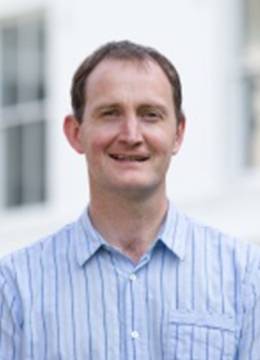In a Q&A, Kieran O'Sullivan discusses being a researcher, a teacher, a coach and a hands-on physio
PhysioUpdate caught up with Limerick-based Kieran O'Sullivan, who is part of an international team of researchers that conducted the influential RESTORE trial, which has highlighted the benefits of offering a personalised care approach to people with back pain.
In a Q&A with editor Ian A McMillan, Kevin offers tips to physiotherapists with ambitions to become researchers and explains how he manages to keep fit and healthy – despite having a challenging workload, which, unusually for an academic, includes managing his own caseload of patients living with pain.

What is your post is at the university and what does our role entail?
I am an associate professor in physiotherapy at the University of Limerick. My role involves a mix of research, teaching and administrative tasks. For example, in terms of research I currently supervise 10 PhD students and am involved in a range of projects on musculoskeletal pain. I am currently course director for one of our two entry-level programmes (we have both an BSc and MSc in physiotherapy) and I am the head of physiotherapy within the School of Allied Health.
Tell us a little about your background
I think that – like a lot of people – I got into physiotherapy because of my own interest in sport, even though, as we all realise as we go through physiotherapy, sport is a very small part of what the profession covers. I graduated from University College Dublin (UCD) in 1999.
What drew you into research and what topics excite you?
I was not initially interested in research – I wasn’t clear how it would change clinical practice, as I thought it was too removed from everyday patients. I still think that was partly true based on some forms of research! However, while studying for postgraduate certificates and master’s degrees, I met people like Peter O’Sullivan who showed me how research could be very linked, and useful, to clinical practice.
What steps should physios take who want to start conducting research?
- find good people to work with – this is, in my opinion, is more important than the topic
- start small: lots of people aim too high and then when an ambitious project doesn’t succeed, they think they cannot do research. So be very modest for the initial project, and then move on from that initial success!
- go to a conference and notice the breadth of projects and topics – and think about what is best suited to you – considering your own interests and skills, but also your work setting, patient profile and so on
You have been involved in the international RESTORE study. What are its headline findings?
I played a modest role in the RESTORE trial, which was led by associate professor Peter Kent at Curtin University in Perth, Australia, and Professor Mark Hancock at Macquarie University in Sydney. It showed that a personalised care approach for back pain can have significant benefits. For example, patients reported less pain and disability, but, even more critically, this was associated with savings of thousands of euros per person.
The approach, called cognitive functional therapy (CFT), offered personalised care to help people with back pain ‘join the dots’ regarding their own pain triggers, so that they could make sense of their pain. Thereafter, people with pain were helped to regain confidence in how to move, as well as putting together a plan to improve their general health. The RESTORE trial followed up on two previous successful clinical trials of this approach, one of which I led in Ireland.
Do you still see patients as a physio – if not, do you miss practising?
I am pretty rare among full-time academics in that I still see some patients. The number has become smaller over the years as my university commitments have become ever bigger, as well as my kids’ ages right now meaning that (in the best way possible!) my evenings are very busy.
I actually love seeing the small number of patients I see (all with persistent pain) as it both reminds me how much progress we have made, and equally how tricky it can be translating guidelines into everyday clinical practice.
How do you relax away from work?
A mix of physical activities (slow running and gardening – we grow our own veg – and multiple forms of kids coaching (hurling, camogie, Gaelic football) and volunteering (Scouts). When my workload is at a manageable level – I actually really enjoy my work – the challenge can be managing when the exciting and interesting projects become too time-consuming and eat into downtime. But I doubt I am alone in that struggle!
Twitter: @kieranosull
To find out more about studing physiotherapy at the University of Limerick, click
Author: Edited by Ian A McMillan













